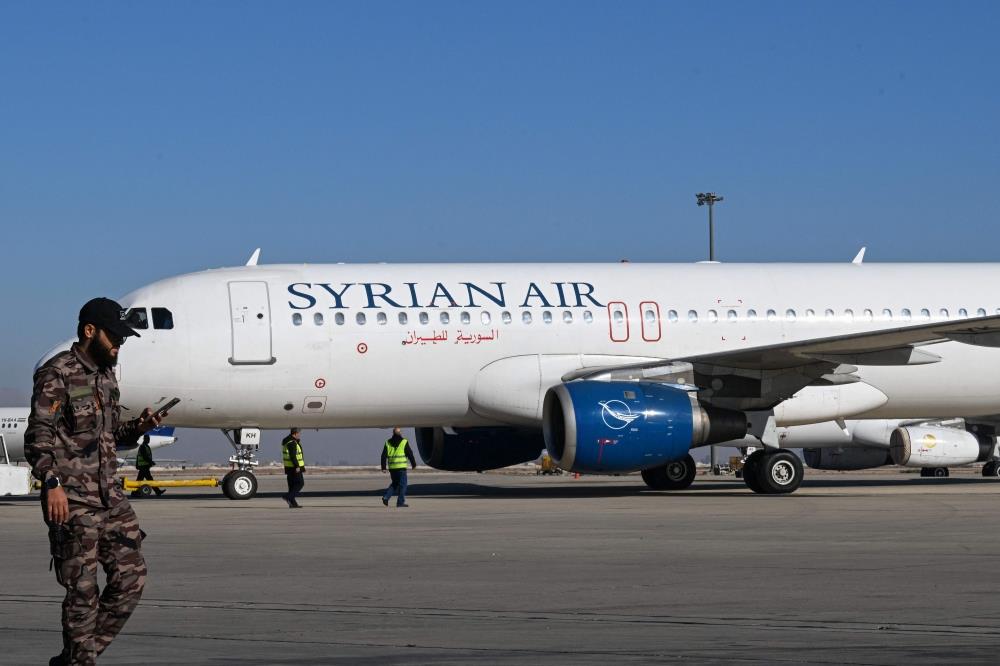
Syria's First Flight Since Assad's Fall Takes Off
Damascus: The first commercial flight since the ouster of president Bashar al-Assad took off from Damascus airport on Wednesday, offering Syrians a glimmer of hope after years of war and decades of oppression.
Assad fled Syria following a lightning offensive spearheaded by the Hayat Tahrir al-Sham (HTS), more than 13 years after his crackdown on democracy protests precipitated one of the deadliest wars of the century.
He left behind a country scarred by decades of torture, disappearances and summary executions, and the collapse of his rule on December 8 stunned the world and sparked celebrations around Syria and beyond.
The country's new rulers have sought to keep its institutions going and, on Wednesday, 43 people were aboard the flight from Damascus to Aleppo, the first since Assad was toppled and fled to Russia.
Earlier this week, airport staff painted the three-star independence flag on planes, a symbol of the 2011 uprising now adopted by the transitional authorities.
In the terminal, the new flag also replaced the one linked to Assad's era.
The joy sparked by Assad's departure has not put an end to the woes of a country wracked by years of civil war and which has become heavily dependent on aid.
'We want to know'
The military chief of the victorious HTS said it would be "the first" to dissolve its armed wing and integrate into the armed forces, after the leader of the group ordered the disbanding of the rebel organisations.
"In any state, all military units must be integrated into this institution," Murhaf Abu Qasra, known by his nom de guerre Abu Hassan al-Hamawi, said in an interview with AFP.
"We will be, God willing, among the first to take the initiative (to dissolve our armed wing)," he said.
HTS has also vowed justice for the crimes committed under Assad's rule, including the disappearance of tens of thousands of people into the complex web of detention centres and prisons that was used for decades to silence dissent.
"We want to know where our children are, our brothers," said 55-year-old Ziad Alaywi, standing by a ditch near the town of Najha, southeast of Damascus.
It is one of the locations where Syrians believe the bodies of prisoners tortured to death were buried -- acts that international organisations say could constitute crimes against humanity.
"Were they killed? Are they buried here?" he asked.
According to the Syrian Observatory for Human Rights war monitor, more than 100,000 people died or were killed in custody from 2011.
The country's new rulers have stepped up engagement with countries and international institutions.
EU chief Ursula Von der Leyen said the bloc would intensify its "direct engagement" with the new administration.
Britain, France and Germany have sent delegations to Damascus, while Italy's Prime Minister Giorgia Meloni said Rome was "ready to engage with the new Syrian leadership", but urged "maximum caution".
'Syrian-led'
Members of the UN Security Council, which includes Assad ally Russia as well as the United States, called on Tuesday for an "inclusive and Syrian-led" political process.
"This political process should meet the legitimate aspirations of all Syrians, protect all of them and enable them to peacefully, independently and democratically determine their own futures," a statement said.
It also "underlined the need for Syria and its neighbours to mutually refrain from any action... that could undermine each other's security".

Legal Disclaimer:
MENAFN provides the
information “as is” without warranty of any kind. We do not accept
any responsibility or liability for the accuracy, content, images,
videos, licenses, completeness, legality, or reliability of the information
contained in this article. If you have any complaints or copyright
issues related to this article, kindly contact the provider above.

















Comments
No comment